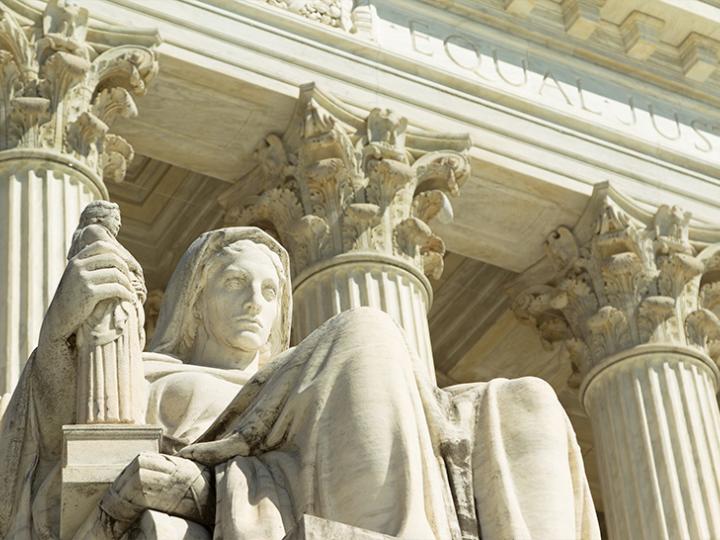The U.S. Supreme Court cited both the Model Penal Code and the Restatement Third, The Foreign Relations Law of the United States, in a case holding that foreign corporations cannot be defendants in suits raised under the Alien Tort Statute (ATS).
In Jesner v. Arab Bank, PLC, the petitioners, the majority of whom were foreign nationals, brought claims arising under the ATS, alleging that they or their family members were injured or killed as a result of terrorist acts committed in the Middle East, and claiming that those acts were partly caused or facilitated by Arab Bank, a Jordanian financial institution with a New York branch.
Justice Anthony M. Kennedy, joined by Chief Justice John G. Roberts, Jr. and Justice Clarence Thomas, held that “. . . absent further action from Congress, it would be inappropriate for courts to extend ATS liability to foreign corporations,” determining that “any imposition of corporate liability on foreign corporations for violations of international law must be determined in the first instance by the political branches of the Government.”
The opinion suggested that “Congress might find that corporate liability should be limited to cases where a corporation’s management was actively complicit in the crime” and then cited as an example the language of Model Penal Code § 2.07(1)(c). Section 2.07(1)(c) states:
(1) A corporation may be convicted of the commission of an offense if:
. . .
(c) the commission of the offense was authorized, requested, commanded, performed or recklessly tolerated by the board of directors or by a high managerial agent acting in behalf of the corporation within the scope of his office or employment.
In her dissent, Justice Sonia Sotomayor, joined by Justices Ruth Bader Ginsburg, Stephen G. Breyer, and Elena Kagan, argued that “The text, history, and purpose of the ATS, as well as the long and consistent history of corporate liability in tort, confirm that tort claims for law-of-nations violations may be brought against corporations under the ATS.”
The dissent opined that “. . . the plurality fundamentally misconceives how international law works and so misapplies the first step of Sosa [v. Alvarez-Machain, 542 U.S. 692 (2004)].” In discussing the “norm-specific first step” of Sosa, the dissent explained that “[i]nternational law imposes certain obligations that are intended to govern the behavior of states and private actors,” and cited Restatement Third, The Foreign Relations Law of the United States § 702 and the Introductory Note to Part II of that Restatement for the proposition that those obligations include “substantive prohibitions on certain conduct thought to violate human rights, such as genocide, slavery, extrajudicial killing, and torture.”
The dissent noted that “Sosa does not, however, demand that there be sufficient international consensus with regard to the mechanisms of enforcing those norms . . .” and cited § 111 of the Restatement to support the contention that “[i]n the absence of special agreement, it is ordinarily for the United States to decide how it will carry out its international obligations.”
In rejecting an argument put forth by Justice Neil M. Gorsuch in his concurrence—in which Justice Gorsuch suggested that courts should “exercise restraint in recognizing causes of action under the ATS”—Justice Sotomayor cited § 404, Reporters’ Note 1, of the Restatement, arguing that “Congress has ratified treaties requiring the United States ‘to punish or extradite offenders, even when the offense was not committed . . . by a national.’”
